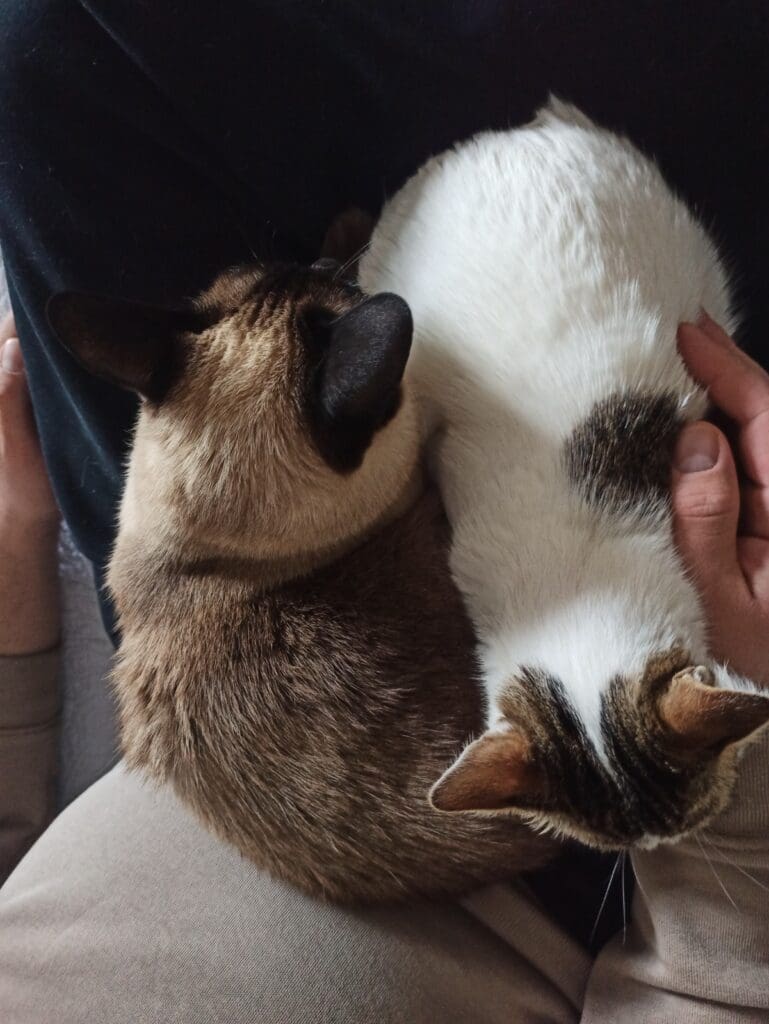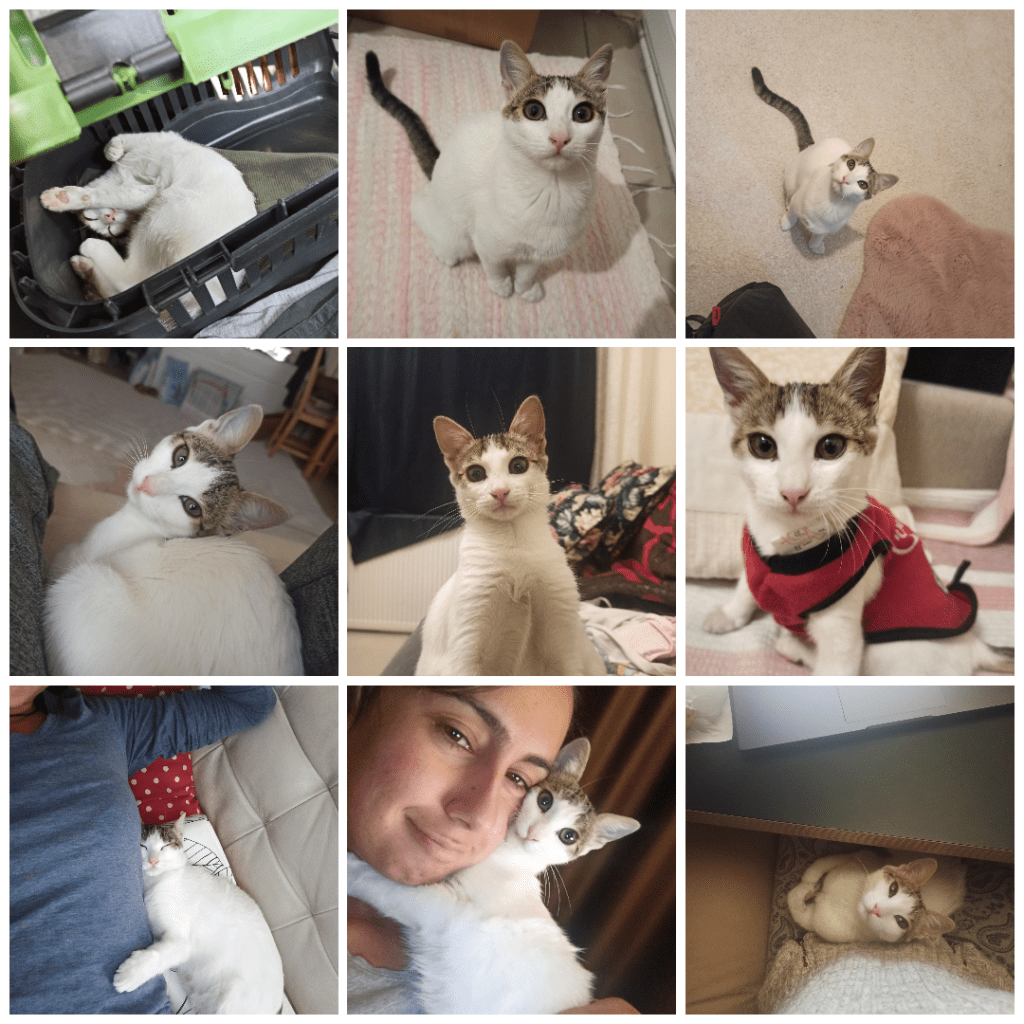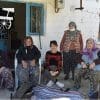Loss Series 1: Coping with Pet Bereavement: My Forever Love for My Beautiful Cat, ‘Timi’
Author’s Memo
Loss Series 1: Coping with Pet Bereavement: My Forever Love for My Beautiful Cat, ‘Timi’ is definitely not a farewell; it is only a love letter for my beloved cat who got lost on January 15, 2023, days after a magnitude 5.6 earthquake hit southern Türkiye. Like my country, I was also shaken deeply, and like the buildings, my heart almost collapsed. I lost not only one of my students (because of the earthquake) but also my cat. The weight of these two losses was (and has been) too heavy for me to carry. This piece is the first of the letter series that I am going to publish. This is my way of holding on to her memories. Since then, I have lost many more things and people. This is how I grieve. The next ones will be about the other losses I have experienced.
Like my country, I was also shaken deeply, and like the buildings, my heart almost collapsed.

She has been on my mind for a long time. She has been on my mind for a long time. A long cry came in the middle of the night when I left my study room to grab a snack at 2:00 in the morning. One of my cats was lying on the counter. She woke up, then she saw that I was searching for a snack, and she followed me, hoping that she would also get something. She followed me everywhere and showed me such great love and kindness that I couldn’t stop myself from thinking about Timi, my beloved cat, who got lost in February 2023 when I was in my hometown, İzmir.
A long cry came in the middle of the night when I left my study room to grab a snack at 2:00 in the morning.
It was almost a couple of weeks after a huge earthquake hit Türkiye. I was sleeping on the couch in the living room of my mom’s house. Mom came to the room in shock and panic, and she said, ‘There has been a huge earthquake, Dilek, wake up!’ I woke up, we woke up, and the whole country woke up to a terrible quake on that day. And we couldn’t sleep at all, or well, for a very, very long time. Thousands of people have died. Many couldn’t be found for a long time under rubble. The weather was extremely cold. People were dying of hunger, cold, and broken hearts. Words were and have been meaningless.
Among all this tragedy, my cat Timi got lost. She just got lost! I don’t know how to tell this story without blaming myself or others for this tragedy. Because it’s impossible to do so. I am not going to tell you how she got lost. She just disappeared when somebody was taking care of her at our home. Maybe she ran away, or maybe she died. She just left home and somehow did not come back. That’s all.
The days, the horrible, the terrible, hellish days after that. I accuse myself of leaving my home and my cats to someone who knows nothing about taking care of cats. I blame everything—every day and everyone. The day after I received the news, I took the wheel even though I didn’t know how to drive a manual transmission car. My mom was shocked because she knew that I couldn’t drive very well. I took the car. I drove 600 kilometres home to the capital of Türkiye, Ankara.
Mom came to the room in shock and panic, and she said, ‘There has been a huge earthquake, Dilek, wake up!’
I can never forget the terrible feeling when I entered home. A beach ball right in my face! It felt as if a crime was committed there. My cat wasn’t there. She was so special and important to me. You know why? I found her on the street. No, sorry. This is not how I found her. I was walking on the street with my husband, with shopping bags in our hands. A group of dogs were barking at something tiny. I saw the thing they were barking at. It was a tiny cat, which looked like a scared snowflake. I lost my mind, threw the shopping bags on the floor, and ran to the cat. I think I punched one or two of the dogs.
And then I took the little snowflake in my hands, kissed her, comforted her, and took her home. And from that exact moment on, I knew that she was going to be mine. She was a very, very loving, friendly, happy, and naughty cat, exactly like me. She was very playful, funny, and brave. We spent two happy and beautiful years together with my other cat, the Siamese Alya.
I can never forget the terrible feeling when I entered home. It felt as if a crime was committed there.
On the days after she got lost, it was difficult to breathe, to sleep, to eat, to smile, to work—it was even difficult just to survive. I was looking for her literally everywhere. In every street, every corner, at any hour, by asking everyone, even though I live in a residence complex that is opposite the university campus where I work and where everyone knows each other, I took the risk of being labelled as a crazy cat woman who is looking for her cat crying. From the very early hours of the morning until night, I looked for her everywhere and every day for months. I cried a lot. It was like my baby. No, I’m deleting the word ‘like’. She was my baby.
On the days after she got lost, it was difficult to breathe., to sleep, to eat, to smile, to work: it was even difficult just to survive.
There is such a thing as grieving over a pet. People in Türkiye don’t understand why and how on earth a person can grieve after a cat. It is just a pet for them. They think we are crazy. Many people told me to buy another one. Our luxurious! residence complex didn’t even bother looking at the security camera recordings. They told us that the cameras were not working that day when she got lost. I prepared and photocopied a notice with her photo and my name on it. She was so important to me that if someone found her, I was going to give them 10,000 Turkish liras, which was more than the minimum wage in Türkiye at that time. And I wrote on the notice. I wrote that I was going to give an award to the person who found her.
There is such a thing as grieving over a pet. People in Türkiye don’t understand why and how on earth a person can grieve after a cat. It is just a pet for them. They think we are crazy.
Many people called just to troll me by saying that they found the cat, but I needed to give them the money first. Many also called just to say I’m crazy. And some of them called just to tell me that I’m a stupid b****. And also, a couple of others called to tell me that I’m an ignorant person because I’m grieving after a cat during a time when people lost their beloved ones in the earthquake, and I’m looking for a cat! That must be an unbelievable thing for people. Now is September. After eight months, I’m able to write something after her. I cannot look at her photos. I’m going to put a photo here to accompany this article. She was a tiny, Snow White, naughty, and beautiful cat. I love you, my baby. I miss you.

Credits
Images by Dilek İşler Hayırlı
Featured Image taken in Dikili, İzmir, Türkiye by Dilek İşler Hayırlı
Learn More
New to autoethnography? Visit What Is Autoethnography? How Can I Learn More? to learn about autoethnographic writing and expressive arts. Interested in contributing? Then, view our editorial board’s What Do Editors Look for When Reviewing Evocative Autoethnographic Work?. Accordingly, check out our Submissions page. View Our Team in order to learn about our editorial board. Please see our Work with Us page to learn about volunteering at The AutoEthnographer. Visit Scholarships to learn about our annual student scholarship competition.
Dilek İşler Hayırlı is as an English Language Instructor at Ankara Yildirim Beyazit University. Her MA thesis in Folklore explored toy and play museums in Turkey and was published in Turkish. In addition to supporting The AutoEthnographer, she is the editorial assistant for the journal Culture Academy. Her research areas are cultural heritage, toy and play museums, autoethnography, village ethnography, monographies and memory. She is currently conducting a village monography project with Aliağa Municipality in İzmir, Turkey. This will be the focus of her autoethnographic PhD dissertation. She is very happy to have been introduced to autoethnography by her supervisor, Prof. Dr. Serpil Aygün Cengiz.
















